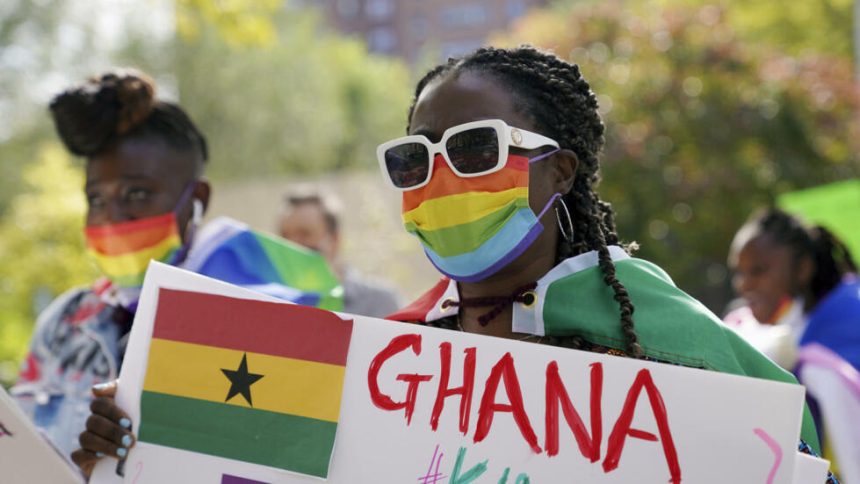Parliament of Ghana is facing a deadlock in determining the suitable penalty for individuals within the LGBTQ+ community involved in intimate activities with each other.
The controversial LGBT bill was presented to Speaker Alban Sumana Kingsford Bagbin on June 29, 2021 and is being spearheaded by 8 members of parliament. Supporters of the initiative are pushing for the criminalization of promoting, advocating, funding, and engaging in acts of homosexuality within the country; the rationale behind the proposal was explained by the chairman of the committee, Hon. Kwame Anyimadu-Antwi, MP for Asante-Akim Central constituency on Tuesday, December 12, 2023
Disagreements emerged in the Constitutional and Legal Affairs Committee, which proposed up to 3 years in jail without specifying a minimum sentence. The committee’s chairman, defended the recommendation, citing support from religious groups and the need to balance societal condemnation with rehabilitation opportunities.
“But Mr. Speaker, in course of the consideration, this is what I already informed members that we needed to iron out this and most of the religious bodies were supporting the fact that they would give people who are prepared to go through reforms, the opportunity to go through. If we make a strict law that if you are found guilty, or you practice this, you don’t have an option. Mr. Speaker, we don’t have a community service that would have been more severe than giving the person a custodial sentence, because the society will look down upon you.”
“But to caution you or to give you deserved imprisonment or imprisonment, if we leave it to the discretion of the judge, they are also members of this society, they are learned, and depending on the circumstances, that’s why I am comfortable if we give the upper limit without saying that the person must be imprisoned as a minimum requirement.”
Despite the committee’s stance, the bill sponsor, Samuel Nartey George, MP for Ningo-Prampram stressed the importance of determining the severity of penalties. He called for advice on penalty units and argued for both upper and lower limits on custodial sentences, triggering a debate on imprisonment duration.
“Now, with the engagements we have and the intendments not to be only punitive but restorative, the question arose that if you use the first degree felony, you are looking at a minimum of five years and a maximum of 25 years, which appears to be too high handed. If you were also looking at restorative, if you were looking at only misdemeanor, that also appeared to be too linear not to act as a deterrent. ”
“And that is why we suggested a second degree felony, which then sits in between the misdemeanor and the first degree. And that’s why we suggested that the maximum should be three years. But I agree with the position of the majority leader that in that case we should then get an advice on what the minimum penalty of 750 units is concurrent with. Is it three months or six months so that we have a lower limit also for custodial sentence?”
The Speaker, intervened, implying consideration over the MP’s proposal. He deferred further discussions, assigning parliamentary drafters to capture diverse perspectives and intentions in a detailed document.
“I would defer putting the question on that and leave it with the draft person to capture it. The position now is that usually before we go through the third reading, they would have compiled our decisions, brought it to us. We’ll go through to make sure that our decisions are really captured before we do the third reading. And so there should be no fear. With this, we defer question on it and we refer it to the draft person for the appropriate rendition.”
–
Story by: Nsoh Ezekiel | univers.ug.edu.gh




